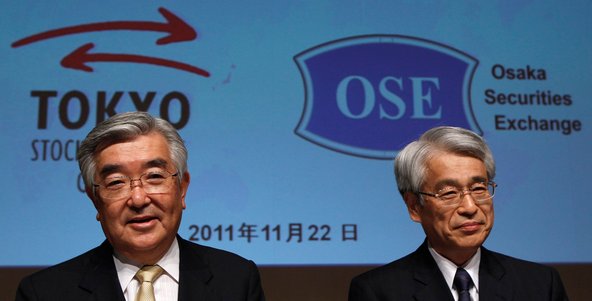The European Commission is expected to give a decision Sept. 3 on whether to allow Aegean Airlines, an Athens-based carrier, to take over its Greek competitor, Olympic Air.
The proposed deal is the second time the two companies have tried to get together. The first, a merger plan in 2011, was blocked by the commission on antitrust concerns.
The outcome this time will be an indication of how far the E.U. competition regulator is prepared to adapt its policies to the harsh economic realities of recession-battered southern Europe.
In February, the commission also rejected a proposed merger of Ryanair and Aer Lingus in Ireland, another country ravaged by an economic collapse following the 2008 financial market crisis.
Aegean Airlines and Olympic Air say that the merger offers their only hope of survival. If the commission rules against them, they say, they have no Plan B.
“I was asking politicians what they do after they lose an election,” Eftichios Vassilakis, executive vice chairman of Aegean Airlines said during an earnings call in April. “I don’t plan to lose the election. So that’s as far as I will go.”
In the Aegean-Olympic case, the commission has argued that the proposed merger would form a monopoly, or dominate the market, on several routes, including those between Athens and popular tourist destinations like Chania, on the island of Crete, and the islands of Santorini and Corfu. In response, Aegean has offered several concessions, including giving away some slots and agreeing to freeze fares.
Aegean also says that the merged company would account for only about 30 percent of domestic air traffic in Greece. Three years ago, the merged entity would have represented 80 percent of the market but the airlines have been shrinking, pummeled by a drop in their domestic traffic and the proliferation of low-cost competitors like Ryanair and EasyJet, said Stamatis Draziotis, an equity analyst at Eurobank in Athens who covers Aegean. “It’s obvious that the Greek market does not have room for two airlines of this size,” he said.
The European Commission is expected to give its decision Sept. 3, but because of the composition of the companies’ fleets, there has already been a natural split in the market that allows the two carriers to act less as competitors. Aegean has a larger fleet and bigger aircraft suitable for international flights, while Olympic’s fleet, mostly composed of turbo props, is geared to shorter flights, the two airlines say.
Greece and Ireland, in many ways the poster children for the European economic crisis, are not alone in exploring airline mergers. Europe’s market has undergone a flurry of consolidation over the past few years, with Lufthansa merging with Austrian Airlines, and KLM with Air France. What distinguishes the Olympic-Aegean deal, much like Aer Lingus and Ryanair, is that the two carriers operate in the same domestic market.
For some, the fact that Europe is in its fifth year of economic crisis justifies a loosening of E.U. restrictions on competition law to give struggling airlines a chance to survive. “Given the state of the Greek economy and the importance of inbound tourism,” said John Strickland, director of JLS Consulting in London, “competition between two home carriers is currently something of a luxury.”
Some competition economists say that it would be odd if the Aegean and Olympic deal were to go through after the Ryanair and Aer Lingus proposal was blocked. But George Koulouris, deputy chief executive officer of Marfin Investment Group, the parent company of Olympic Air, says that the two merger proposals are very different.
“There are no similarities of size and nature of the market,” Mr. Koulouris said in an interview last week. In the Irish case, “both airlines are a lot larger” than the Greek carriers, he noted. In Ireland, moreover, “there are barriers to enter the market,” he said: “In Greece there are no slot restrictions.”
If Aegean and Olympic were to merge, the combined airline would be much smaller than a joint Ryanair-Aer Lingus carrier, and the combined Greek airline would represent 16 percent of international flights in and out of Greece. If Aer Lingus and Ryanair were to merge, the joint airline would account for 83 percent of flights in and out of Ireland, Mr. Koulouris said.
“This transaction is necessary for the future of the Greek airline industry,” he said. If it doesn’t go through, “the two domestic carriers will shrink so much there will be nothing meaningful left.”

Article source: http://www.nytimes.com/2013/06/17/business/global/european-commission-weighs-greek-airlines-deal.html?partner=rss&emc=rss
